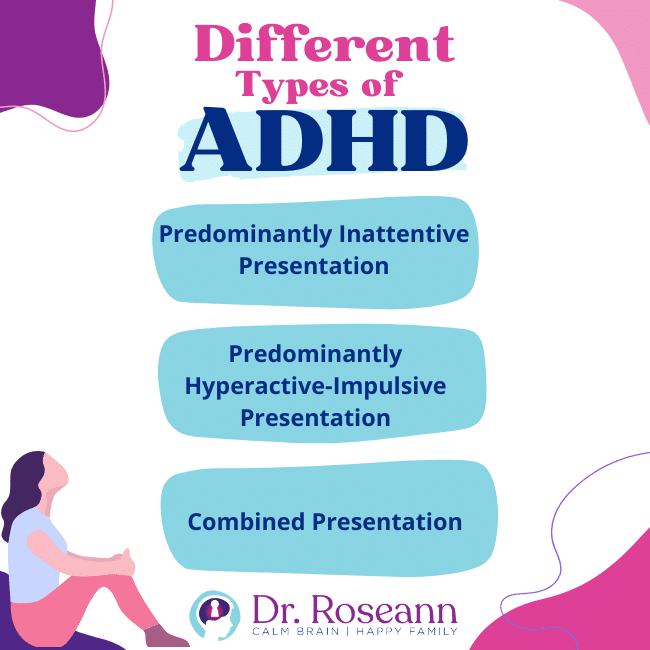Relatable TikTok Trends: Are They Exaggerating ADHD Symptoms?

Table of Contents
The Appeal of ADHD Content on TikTok
The proliferation of ADHD-related content on TikTok isn't accidental. Its appeal stems from two key factors: relatability and entertainment.
Relatability and Shared Experiences
Many individuals with ADHD find immense comfort and validation in seeing their experiences reflected on TikTok. The platform fosters a sense of community, allowing users to connect with others who understand their struggles.
- Forgetfulness: Videos depicting comical instances of forgetting appointments, keys, or even what they were doing mid-sentence resonate deeply.
- Impulsivity: Skits showcasing impulsive purchases, regrettable decisions, or sudden shifts in activity tap into a shared experience.
- Hyperfocus: The intense, all-consuming concentration often experienced with ADHD is humorously portrayed, highlighting both its benefits and frustrations.
This shared experience offers a powerful sense of belonging and reduces feelings of isolation often associated with ADHD. Finding online support and understanding can be incredibly beneficial for mental well-being.
Humor and Entertainment
Creators often employ humor to make ADHD struggles more digestible and engaging for a broader audience. This approach can destigmatize the condition and make it easier for individuals to open up about their experiences.
- Comedic skits portraying the chaotic nature of daily life with ADHD.
- Relatable memes capturing the absurdity of common ADHD symptoms.
- Use of trending sounds and challenges to relate ADHD experiences to broader audiences.
However, the use of humor also presents a potential downside. Trivializing the challenges of living with ADHD can be insensitive and minimize the difficulties faced by many. A balance between humor and accurate representation is crucial.
Concerns about Exaggeration and Misrepresentation
While relatable ADHD content on TikTok can be positive, concerns exist regarding exaggeration and misrepresentation.
Sensationalized Symptoms
Some creators may exaggerate or misrepresent ADHD symptoms to garner more views and engagement. This can lead to a skewed perception of the condition.
- Exaggerated portrayals of impulsivity as constant chaos.
- Oversimplification of complex symptoms, ignoring co-occurring conditions.
- Focus on the more "quirky" aspects, neglecting the significant challenges.
Accurate information and representation are vital for fostering understanding and avoiding the perpetuation of harmful stereotypes.
Impact on Self-Diagnosis
The ease of accessing information on TikTok can lead to self-diagnosis, a potentially problematic trend. Many viewers might mistake relatable experiences for definitive diagnostic criteria.
- Misinterpretation of relatable content as a confirmed diagnosis.
- Delayed professional assessment due to reliance on social media.
- Potential for misdiagnosis leading to inappropriate treatment or lack thereof.
It's crucial to emphasize the importance of seeking professional assessment and diagnosis from qualified healthcare professionals. Reliable resources like the or the can provide accurate information and support.
The Role of Algorithm & Confirmation Bias
TikTok's algorithm and confirmation bias play a significant role in shaping users' perceptions. The algorithm personalizes content based on user engagement, reinforcing existing beliefs and potentially exposing individuals only to information confirming their pre-existing ideas, regardless of accuracy.
- Reinforcement of pre-existing biases through targeted content delivery.
- Limited exposure to diverse perspectives and counterarguments.
- Creation of echo chambers where inaccurate information is amplified.
Critical thinking and media literacy are essential tools for navigating the complexities of online information.
Finding a Balance: Positive Aspects & Responsible Content Creation
Despite concerns, TikTok can be a powerful tool for building community and raising awareness.
Community Building and Support
Many TikTok communities provide valuable support and understanding for individuals with ADHD. Connecting with others facing similar challenges can significantly reduce feelings of isolation.
- Finding peers for shared experiences and support.
- Access to coping strategies and life hacks.
- Building a sense of belonging and reducing feelings of loneliness.
However, it's crucial to seek out reliable sources of information alongside community support.
Advocacy and Awareness
TikTok can be a platform for advocacy and raising awareness about ADHD. Creators can use their platforms to educate others, challenge stigmas, and advocate for better support systems.
- Increased visibility and understanding of ADHD challenges.
- Advocating for improved access to diagnosis and treatment.
- Challenging negative stereotypes and misconceptions.
Responsible content creation that prioritizes accuracy and sensitivity is key to leveraging TikTok's potential for positive social impact.
Conclusion
Relatable TikTok trends around ADHD offer a valuable sense of community and raise awareness, but they also present risks. Exaggerated or misrepresented symptoms can lead to misdiagnosis and a skewed perception of the condition. While the humor and relatability are undeniably appealing, critical engagement with this content is crucial. Don't rely solely on social media for understanding ADHD; seek professional help and utilize reliable resources like CHADD and ADDitude Magazine to ensure accurate information and support. Continue exploring the conversation around "Relatable TikTok Trends: Are They Exaggerating ADHD Symptoms?" and share your thoughts responsibly, prioritizing accurate information and support for those with ADHD.

Featured Posts
-
 Wrexhams Promotion Ryan Reynolds Joins The Celebration
Apr 29, 2025
Wrexhams Promotion Ryan Reynolds Joins The Celebration
Apr 29, 2025 -
 Saudi Arabias Pif Imposes Year Long Ban On Pw C Advisory
Apr 29, 2025
Saudi Arabias Pif Imposes Year Long Ban On Pw C Advisory
Apr 29, 2025 -
 Getting Tickets For The Capital Summertime Ball 2025 Tips And Strategies
Apr 29, 2025
Getting Tickets For The Capital Summertime Ball 2025 Tips And Strategies
Apr 29, 2025 -
 Champions League Ein Rueckblick Auf Die Deutschen Begegnungen
Apr 29, 2025
Champions League Ein Rueckblick Auf Die Deutschen Begegnungen
Apr 29, 2025 -
 Kitzbuehel Feiert Mit Tgi Ag Praesentiert Zukunftsplaene
Apr 29, 2025
Kitzbuehel Feiert Mit Tgi Ag Praesentiert Zukunftsplaene
Apr 29, 2025
